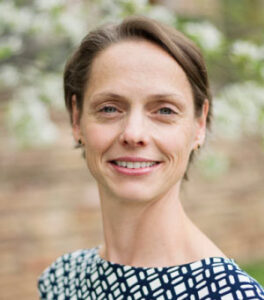Why We at The FLTMAG Are Embracing Open Access and Open Review
By Shannon Donnally Quinn, The FLTMAG Editor-in-Chief, and Edwige Simon, The FLTMAG Founder


DOI: https://www.doi.org/10.69732/DUCW5113
Open Access for Readers
When open access is mentioned, most people think of the problem of the cost of textbooks for students, but the cost of academic publications is also an important issue in education. Without an institutional affiliation, academic articles can cost up to $50, and undoubtedly this burden falls disproportionately on less privileged members of our community, including those outside of the United States. To encourage more inclusion in our profession, we need to provide opportunities for everyone to engage with scholarship of various kinds. And if we want teachers to incorporate innovation and best practices into their teaching, we need to make publications about innovative practices available to them instead of hiding them behind a paywall.
For these reasons, The FLTMAG publishes our articles under a Creative Commons license, using a Creative Commons Attribution-NonCommercial 4.0 International license. Rather than limiting access to information about good work, we hope that it spreads widely.
Similarly, the tone of The FLTMAG aims to be welcoming to all kinds of readers. While empirical research and serious standards of scholarship are important, the majority of people teaching language and literature do not have extensive training in SLA or research methods. As such, we provide content written in everyday language but informed by pedagogical best practices so that everyone has the opportunity to improve their teaching practices.
Openness for Authors
Our culture at large has been grappling with many types of systemic inequity, and for a long time, opportunities for publication have mostly been reserved for those that have research as a part of their formal professional obligations (mostly tenure-track and tenured professors). But tenured faculty have never had a monopoly on the best work, and in our field we should acknowledge that we are enriched when everyone in the community has the opportunity to share knowledge and experience. K-12 teachers, non-tenure-track faculty, graduate students, and others should also have ways to contribute to a larger discourse in our field. The FLTMAG considers it part of our mission to provide a publication venue that includes more scaffolding than traditional venues for these members of the language teaching community.
As such, The FLTMAG Editorial Board works closely with first time authors or authors not used to publishing in English, guiding them through multiple cycles of revisions and improvements to get their articles ready for publication. While this approach is clearly more time-consuming than simply rejecting a piece, it allows the magazine to bring to light interesting projects that our readership would otherwise not get a chance to learn about.
Open Review
The more unusual part of our “open” policy is probably open review. While the gold standard of academic journals has traditionally been double-blind peer review (where neither the author nor the reviewer know each other’s identity), a growing number of journals are beginning to use open peer review (where both the author and the reviewer can see the identity of the other person). While double-blind peer review certainly has an important role to play in academic scholarship, we believe that open review can also play a role in scholarly exchange.
The fact that authors and reviewers are known to each other encourages a kinder and more thoughtful review process and creates a deeper exchange of ideas between author and reviewer. A process with a greater degree of kindness can help those that do not normally get the chance to write about their work to feel welcome in the community.
Perhaps even more importantly, however, is the potential for connections to form through the review process. Several examples have emerged from our experience where an author and reviewer who had not crossed paths with each other realize that they share essential interests and the review process results in a professional connection that would not have been made otherwise.
A Call for Legitimacy
Of course, a challenge to this model is that open-access and open review journals are viewed as less scholarly than traditional academic journals. Although The FLTMAG uses an open review process and works closely with authors to improve and refine articles, that does not mean that the Editorial Board does not exercise rigor when reviewing submissions. All members of the Editorial Board are experienced language educators and each article is reviewed by two or more reviewers. The FLTMAG has also begun integrating reviewers outside of the Editorial Board, further enriching expertise brought to bear in evaluating articles.
Opportunities for Openness
In order to encourage a greater diversity of authors, The FLTMAG Editorial Board has established two new awards: Best Contribution to The FLTMAG by a graduate student and Best Contribution to The FLTMAG by a K-12 teacher. Both of these awards will be given at the IALLT conference in New Orleans in June of 2023. We hope that more people from these groups will share their work. Please watch for more details about the awards in the coming months.
The FLTMAG also includes advertisements for products and services that are of interest to our readership, and the revenue from these advertisements contributes to the conference and travel grants that IALLT has been able to offer to graduate students, K-12 teachers, and those who live outside the United States. The advertising on the site, however, does not impact our approach to articles and reviews.
Conclusion
We hope that The FLTMAG opens doors for everyone in our community, by offering innovative ideas through our articles and by giving many more people a place to share their work. Please support this open and inclusive movement by reading, subscribing, sharing with colleagues, and writing for us!

